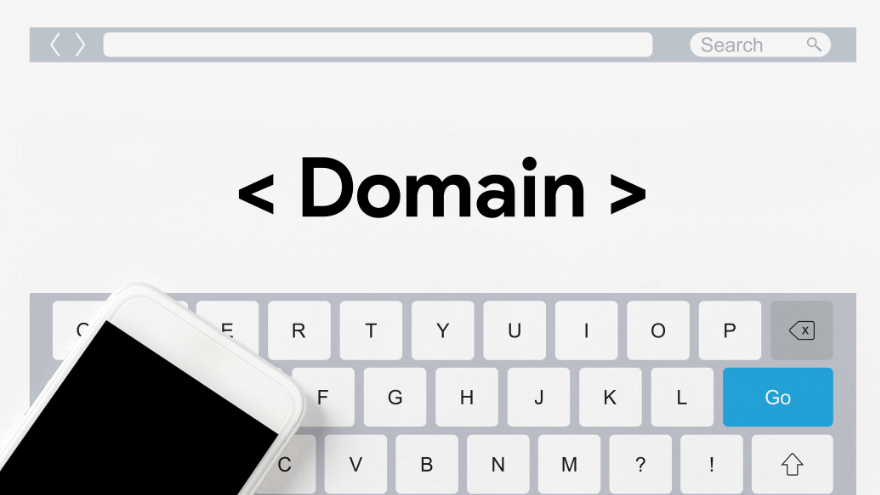The right domain name helps define your brand and makes it easier for customers to find you and can significantly impact your business’s visibility and credibility.
The process of choosing a domain name includes balancing simplicity and relevance. Making the right choices here can set the foundation for your website’s success.
1. Keep It Short And Memorable
A short domain name should be easy for people to type and remember. When a domain is concise, it reduces the risk of errors during typing. This helps visitors reach your site without frustration.
Longer domain names can be complex and hard to remember. If users can’t recall your web address, they might not return. Shorter names stick in people’s minds better.
Memorable names are essential for branding. A simple, catchy name makes a positive impression. It also helps with word-of-mouth marketing. People will find it easier to share with friends and family.
Avoid using special characters like hyphens and numbers. These can be confusing and hard to remember. Stick to letters that form clear and simple words.
Consider using keywords related to your business. This helps people understand what your site is about right away. For example, “BakeShop” is better than “Anna-Bakes-555”.
2. Use Relevant Keywords
Using relevant keywords in your domain name can be very important depending on your business or the type of website you are building. Keywords tell both visitors and search engines what your site is about. For instance, if your website focuses on cooking recipes, you may want to include words like “cook,” “recipe,” or “food.”
Including keywords can improve your site’s ranking on search engines. When people search for related topics, your site is more likely to appear in the results. This can drive more traffic to your site.
Keywords also help with brand recognition. When your domain name reflects your content, visitors find it easier to remember and associate with your brand.
Avoid stuffing your domain name with too many keywords. A cluttered name can be hard to read and remember. Aim for a balance between simplicity and relevance.
3. Avoid Numbers And Hyphens
Using numbers and hyphens in a domain name can confuse users. Numbers are often misunderstood. For example, “5” could be misunderstood as “five” and vice versa. This makes it hard for people to remember and correctly type your domain name.
Hyphens can also cause issues. While they might seem to make a domain more readable, they are often forgotten when typing. This can lead to users being directed to a different, possibly competing, site.
Both numbers and hyphens can create complications in verbal communication. When speaking your domain name out loud, having to clarify a hyphen or number can often be the difference in getting a new client or making a sale.
4. Consider Domain Extensions Carefully
Choosing the right domain extension is important for your website’s success. The most common extension is .com. It’s familiar and trusted by many users. If available, it should be the first choice.
Other extensions like .org, .net, and .edu are also popular. Their use depends on the nature of your site. For example, .org is often used by non-profits, while .edu is for educational institutions.
Country-code extensions like .uk or .ca can target users in specific regions. This can help regional businesses. Using these can make your site more appealing to local users.
Specialty extensions like .store, .blog, or .tech are useful for niche markets. They describe the content or purpose of your site better than generic ones. Though less common, they can be memorable.
Pros and Cons
.com
- Pros: Widely recognized, trusted, easy to remember.
- Cons: High demand, often already taken.
.org
- Pros: Good for non-profits, trustworthy.
- Cons: Less common for general businesses.
.net
- Pros: Suitable for tech sites, more availability.
- Cons: Less memorable than .com.
Country-code Extensions (.uk, .ca)
- Pros: Targets local audiences, builds regional trust.
- Cons: Limits reach to outside these areas.
Specialty Extensions (.store, .blog)
- Pros: Descriptive, great for specific markets, memorable.
- Cons: Less recognized, may confuse some users.
5. Check For Trademark Issues
When choosing a domain name, it is essential to check for trademark issues. Trademarks protect the brand names and logos used on products and services. If your domain name infringes on someone else’s trademark, you could face legal issues.
Conduct a thorough trademark search before finalizing your domain name. This can prevent potential lawsuits and help you avoid costly rebranding efforts. Tools like the USPTO’s online database can be helpful for this task.
It is important to be mindful of any existing trademarks that are similar to your desired domain name. Even slight similarities can lead to disputes. Aim for a unique name that won’t confuse consumers about the origin of your products or services.
Consulting with a trademark attorney might also be a wise step. They can provide professional advice and ensure that your chosen domain name does not infringe on existing trademarks. This can save a lot of hassle in the long run.
6. Make It Easy To Pronounce
A good domain name should be easy to say. If it rolls off the tongue smoothly, it will be easier for people to remember. This can help in word-of-mouth promotion.
Avoid using complex words or unusual spellings. These can confuse people when they try to speak your domain name. Simple is always better.
Consider saying your domain name out loud to a friend. If they can repeat it easily and spell it correctly, you’re on the right track.
7. Think Long-Term
Consider how your business might grow or change over time. Avoid names that might limit your business to a specific product or service if you plan to expand your offerings.
A domain name should be flexible enough to accommodate future trends and changes. Choose something that won’t feel outdated in a few years.
Make sure the name can evolve with your brand. A timeless, adaptable name can help maintain a consistent identity as your business grows and pivots.
8. Include Local Keywords If Applicable
Including local keywords in your domain name can help you connect with customers in your area.
If your business operates in a specific city or region, adding the location to the domain name makes it easy for locals to find.
Examples include adding a city name, neighborhood, or area to your domain name.
A local keyword helps in reaching a specific audience. It can improve search rankings in local search results and appeals to community-minded customers.
Local keywords can also make your domain name more memorable. Customers are likely to remember a domain that includes a familiar place name.
Adding a local keyword can set you apart from competitors who do not target the same area specifically.
Include the location naturally in the name. It should be easy to read and pronounce, ensuring clarity for your audience.
9. Use Online Tools For Ideas
Using online tools can help generate creative domain names. These tools take keywords related to your business and suggest different combinations. They are great for finding unique names that you might not think of on your own.
Domain name generators are popular online tools. They can mix and match words to create new domain name ideas. This can save a lot of time and effort.
Thesaurus websites are useful too. They help find synonyms or related words that can fit your brand. This way, you can explore more options while keeping your domain relevant.
Another helpful tool is WHOIS lookup. It checks if your desired domain name is already taken. This can prevent you from choosing a name that’s already in use.
10. Ensure It Passes The Radio Test
The radio test checks if people can spell a domain name when they hear it. This is important because people often hear about websites through conversations and podcasts. If they can’t easily spell the domain, they’ll likely forget it or mistype it.
Consider whether your domain name is simple and phonetic. If it’s too complex or uses unusual spellings, there’s a higher chance of mistakes. For example, numbers and hyphens can confuse listeners.
Using common words or clear brand names can help pass the radio test. If someone hears “example.com,” they should be able to type it correctly without much thought.
When brainstorming names, say them out loud. Ask friends or family if they can spell it after hearing it just once. This can give you a good indication of how user-friendly the name is.
SEO Benefits
A good domain name enhances your search engine optimization (SEO) efforts. It can help your site rank higher in search results. Using relevant keywords in your domain name provides clues to search engines about your site’s content.
Benefits include:
- Keywords: Incorporate relevant, non-trademarked keywords.
- Domain History: Ensure the domain has a clean history to avoid penalties.
- Availability: Check the availability of the name on social media platforms to maintain consistency.
A domain name that reflects the core of your business can improve your site’s visibility. This means more organic traffic and potential customers finding your site more easily.




